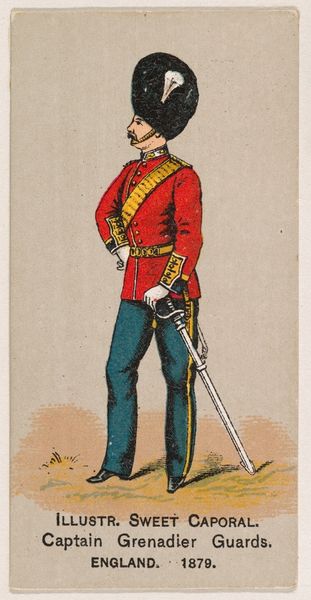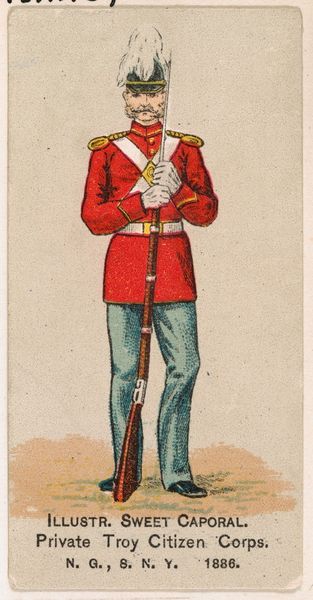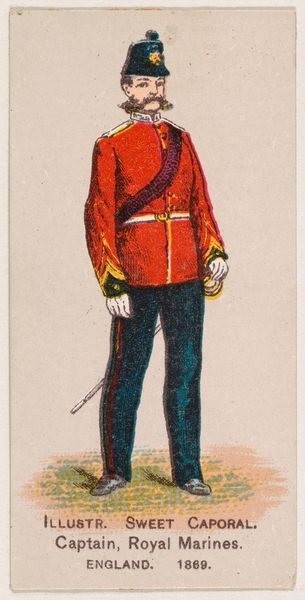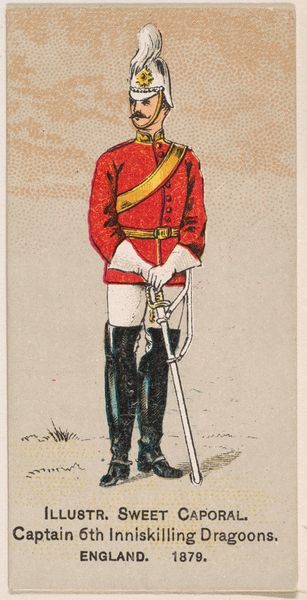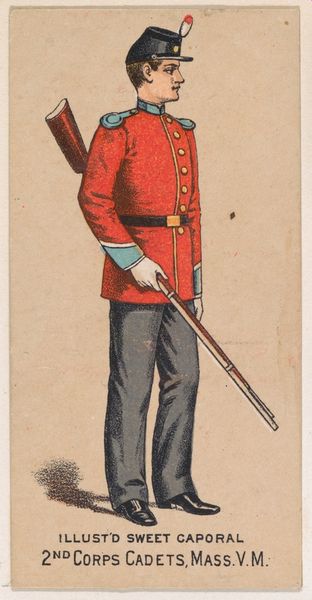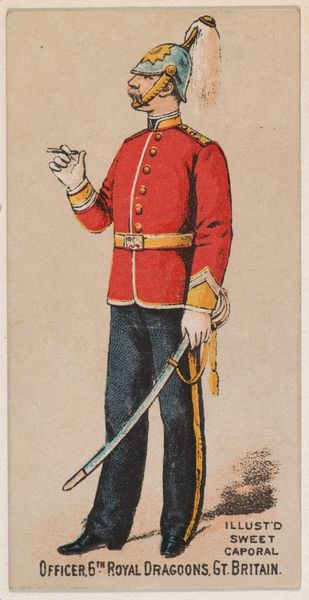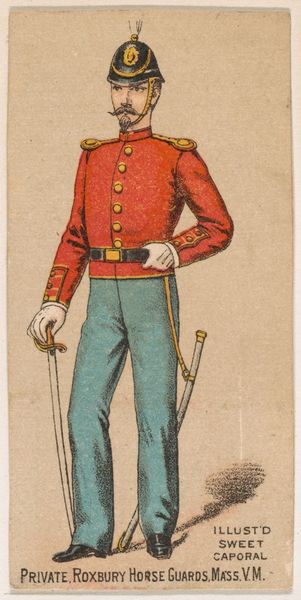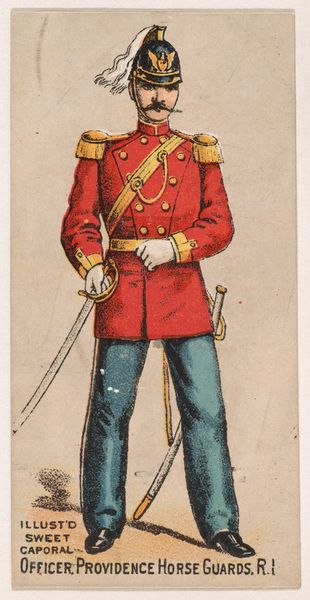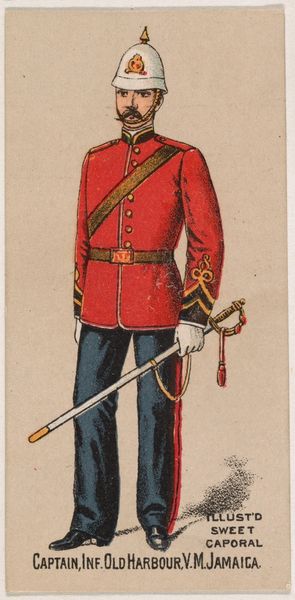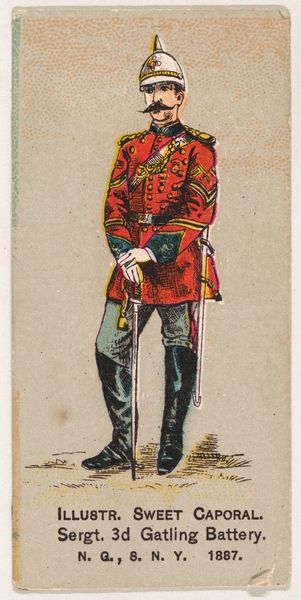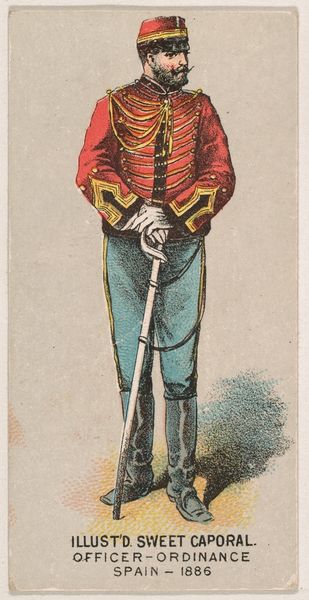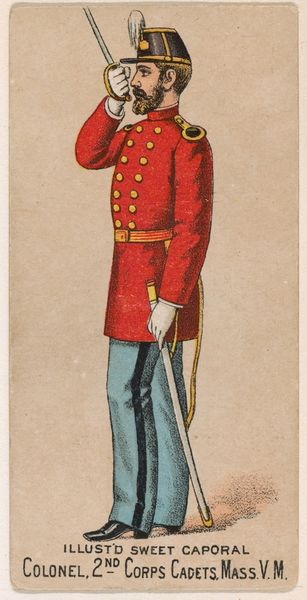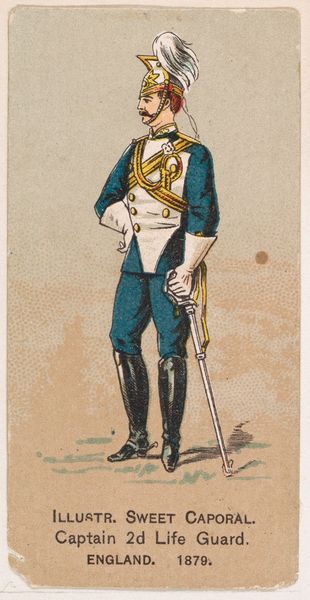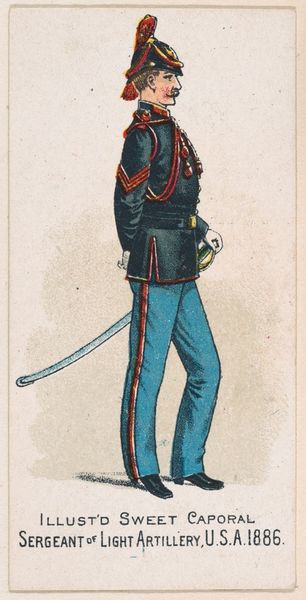
Captain, 5th Northumberland, England, 1879, from the Military Series (N224) issued by Kinney Tobacco Company to promote Sweet Caporal Cigarettes 1888
0:00
0:00
drawing, print
#
portrait
#
drawing
# print
#
caricature
#
caricature
#
men
#
watercolour illustration
#
genre-painting
#
academic-art
#
watercolor
Dimensions: Sheet: 2 3/4 × 1 1/2 in. (7 × 3.8 cm)
Copyright: Public Domain
Editor: So, here we have "Captain, 5th Northumberland, England, 1879," a print made in 1888 by the Kinney Brothers Tobacco Company. It seems like it was originally used to advertise Sweet Caporal Cigarettes. There’s something almost comical about his upright posture, it's rather stiff, especially given he's selling cigarettes. How do you see this portrait operating within its historical moment? Curator: Well, it's fascinating to consider this image as a product of both its depicted time, 1879, and its creation in 1888. By 1888 the romantic glow surrounding military exploits would be colliding with rising awareness of colonial exploitation and class inequality. The figure, while ostensibly a proud representation of the British military, is being used to sell a consumable tied to addiction. What sort of subtle messages might the Kinney Brothers Tobacco Company have been intending to convey, or capitalize on? Editor: That tension you point out is intriguing! The figure’s stoicism becomes quite loaded. It raises the question about the intent and potential interpretation by consumers at that time. Curator: Precisely! The commercialization of such imagery – especially to sell cigarettes – points to how military ideals became intertwined with capitalist agendas. Were consumers meant to associate smoking with strength or status, maybe with this "Captain" and this tobacco company? Editor: I see now, the print reveals not just an individual portrait, but it invites us to contemplate the bigger picture about social conditioning! Curator: Indeed! By analyzing its context, we gain insights into the political power structures, media strategies, and consumer behaviors of the late 19th century. Editor: Thank you, it helps to place the artwork within the society. I will have to investigate if Sweet Caporal cigarette commercials or campaigns show other propaganda means.
Comments
No comments
Be the first to comment and join the conversation on the ultimate creative platform.
